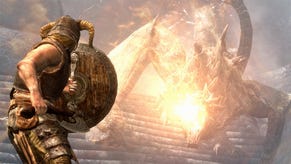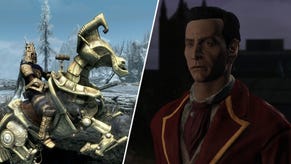Where Does The Elder Scrolls Go From Here?
Now that Skyrim seems to be a done deal, what's next for Bethesda's juggernaut?
This article first appeared on USgamer, a partner publication of VG247. Some content, such as this article, has been migrated to VG247 for posterity after USgamer's closure - but it has not been edited or further vetted by the VG247 team.
With the release of the hefty (and excellent) Dragonborn expansion earlier this year, Bethesda put the chairs on Skyrim's tables and turned out the lights. The fifth chapter of The Elder Scrolls franchise had a good run, continuing the series' trend of each new entry greatly outselling its predecessor, but outside of whatever madness the modding community cooks up there's simply no future left for Skyrim. You'll have to make due with the several hundreds of hours of content that already exist for the game, sorry.
Of course, fans as obsessive and content-thirsty as those The Elder Scrolls inspires have only question on their mind: "What's next?" The obvious answer would seem to be The Elder Scrolls Online, but no matter how good a game TESO turns out to be, it won't be a "proper" Elder Scrolls VI. As a single-player role-playing franchise known for its MMO scope, a true MMO makes perfect sense as a direction for the series. Still, the ever-growing popularity of core Elder Scrolls games proves that plenty of gamers still thirst for great solo play, and that not every game needs to be online.
So what form will The Elder Scrolls VI take? The franchise stands at a sort of crossroads right now. Skyrim pushed the boundaries of visual quality and persistence within the series. With a few minor mods, its PC version can be downright stunning, and it has a remarkable capacity to remember what's changed -- even an arrow you fired off and lost track of 100 hours earlier. Skyrim also pushed the limits of console hardware, barely even running on PlayStation 3 and making the Xbox 360 whimper for mercy as well.
At the same time, Skyrim greatly simplified many of the series' mechanics, much to the dismay of long-time enthusiasts. While some of its streamlining proved to be a welcome sight -- did anyone really miss the Acrobatics stat, which inevitably inspired players to grind for it by jumping like idiots from one end of Tamriel to the other? -- the loss of other features struck some players as an unfortunate dumbing-down of the game to appeal to the console audience. The simplified menu system, for example, worked perfectly on a console controller, but those who preferred mouse-and-keyboard controllers detested it.
So where does Elder Scrolls go from here? Does it carry on down the path of greater simplicity and broader appeal as seen in Skyrim? Or does it pull back and restore features from Morrowind and Oblivion? And what is the next chapter in the mythology, now that all the dragons are scattered and left without a leader?
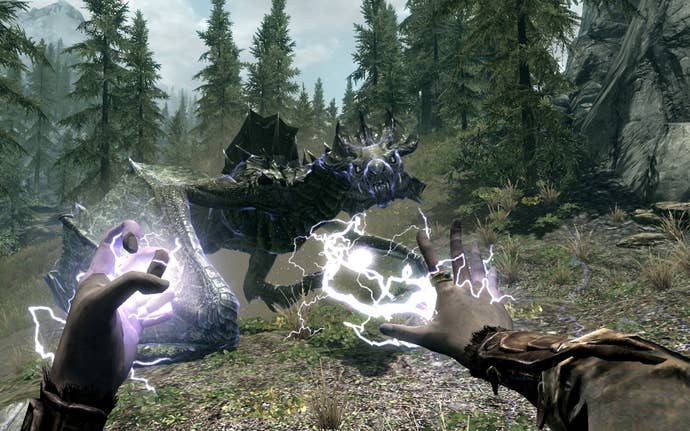
What's Next for The Lore?
The big question for Elder Scrolls VI will be the direction its story takes. Above all, The Elder Scrolls is a series about lore. Tamriel has an extensive history, with the games spanning hundreds of years and the backstory encompassing millennia worth of ages. Each chapter not only brings about radical change, it also honors the changes wrought by previous adventures. Two major developments in Skyrim concerned the fallout of Morrowind (literal fallout, in fact) and Oblivion. The Dark Elves of Morrowind now exist as transient refugees in the wake of their homeland's destruction in The Elder Scrolls III, while the formerly powerful Empire has been reduced dramatically in power and influence in the wake of the capital's near-destruction (and the emperor's assassination) in the previous game.
By and large, Skyrim's story -- with the rise and final destruction of the realm's mythical dragons -- seems largely self-contained. Its hooks for the future appear more in the story's periphery in tangents than in the main plot line. With the fall of the Empire and the secession of many of its client nations came the rise of the Altmer, the High Elves. Their occupational forces spread across Skyrim and, presumably, the rest of Tamriel as well, having forced the Empire to sign a a treaty after the Oblivion Crisis that gave the Altmer a distinct advantage. They clearly have designs on the world... but not, it seems, for conquest.
The fundamental belief driving the High Elves (specifically, the Aldmeri Dominion) is that the world and everything in it -- including themselves -- is an abomination to the gods of the realm, the Aedra. The Altmer want nothing less than the total unmaking of reality, to wipe everything from the face of existence and return the universe to its purest state. Destroying the world seems like a properly immense villainous scheme to center the story of The Elder Scrolls VI around, so there's a pretty good chance all those encounters you had with the Aldmeri Dominion in Skyrim were setting the stage for a future plot line.
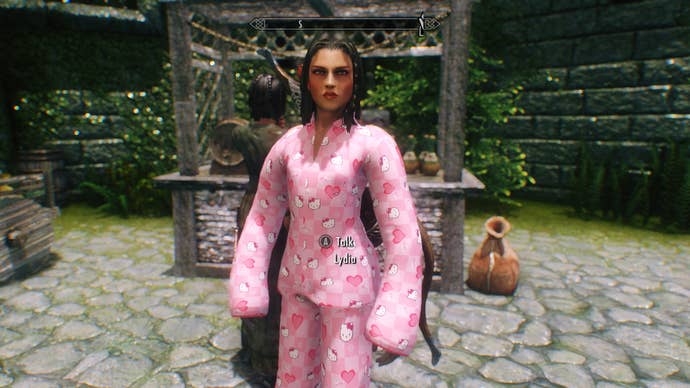
What's Next for The World?
To date, almost every entry in The Elder Scrolls has taken place in one (sometimes two) of its many provinces. Typically, this setting provides the game's subtitle: Morrowind, Skyrim, even Oblivion to a certain degree. There are plenty of others to choose from, as Tamriel's a big place. The problem is that most of them would make for some decidedly goofy settings. For instance, Black Marsh sounds pretty metal, but it would result in a game full of lizard people, and the action would largely be set in swamps... not really a friendly home for fast-paced action.
On the other hand, that would still beat a game based on the Khajit, talking cat-men who hail from the ridiculously named realm of Elsweyr. That's pronounced "elsewhere." Great name for an '80s hospital drama, maybe not so much for a hardcore fantasy adventure.
Assuming the Altmer do take center stage in Elder Scrolls VI, you could reasonably assume much of the game would take place in their homeland, the Summerset Isle. But would that territory be sufficiently unique to host an entire Elder Scrolls game? Looking back at the past decade's episodes, the visually distinct lands of Morrowind (a realm of crazy giant mushrooms) and Skyrim (craggy snow-covered mountains and frosty plains) made for engaging settings, whereas Oblivion often came across as fairly generic fantasy fare. Given the different species' public demeanor, the land of the Orcs -- Orisinium -- would probably make for much more interesting scenery than Summerset. Although "Summerset" would surely make for a more retail-friendly subtitle than "Orisinium."
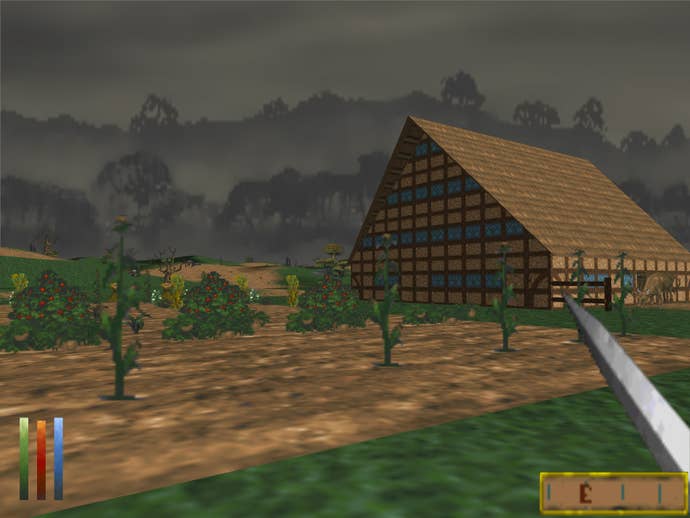
What's Next for the Mechanics?
Perhaps the most pressing question for The Elder Scrolls for the average gamer -- that is, everyone but the developers and a tiny handful of lore grognards -- is how the next chapter will play. Combat and action have never been the series' strong points, and fighting foes in Skyrim could be downright laughable at times. For my part, I practically broke the game by pouring my resources into stealth and archery, allowing me to assassinate practically any enemy in the game in a hit or two from the shadows. I could even take down high-level foes by crouching in front of them and firing arrows at them, unseen at close range in broad daylight.
I didn't have a problem cheesing the game like this, though, because the alternative wasn't particularly fun. Your combat outcomes tend to be feast or famine, as you either stomp the bad guys or find yourself badly overmatched. Melee combat is ridiculously poor, consisting largely of two combatants standing in one another's face trading hits until one falls over, and no amount of superfluous combat skills (shield bashing, death blows, etc.) can disguise that. And while many of the indirect magic spells seem cool in theory, it's rarely more effective to use complex sorcery strategies than to simply pummel the crap out of a foe.
The Elder Scrolls VI needs more refined combat, and more balanced combat. People have held up Dark Souls as an ideal to aspire to, though I'm not sure I agree. Dark Souls has a very different style and purpose to its design than Elder Scrolls games, and its highly focused combat style would stand at odds with Elder Scrolls' more expansive world.
A much better solution than making Elder Scrolls' swordplay more intense and Dark Souls-like might be to rethink its approach to the use of role-playing systems. Classic role-playing games tend to eschew high statistical numbers in favor of more finite systems where a single point of added defense (or THAC0 or whatever) make a significant difference without grossly unbalancing the overall experience. After 50 hours of play time in Skyrim, very little can stand up to a player's character. After 100 hours, a player is essentially invulnerable. Reeling in the numbers and the disbursement of high-level gear might help reign things in, allowing the world to maintain a sort of challenge curve without completely breaking it.
Then again, maybe combat mechanics should stay just as ludicrous and broken as they are now, and the Dark Souls element to steal would be its unique approach to multiplayer. But that might blur the line with TESO....
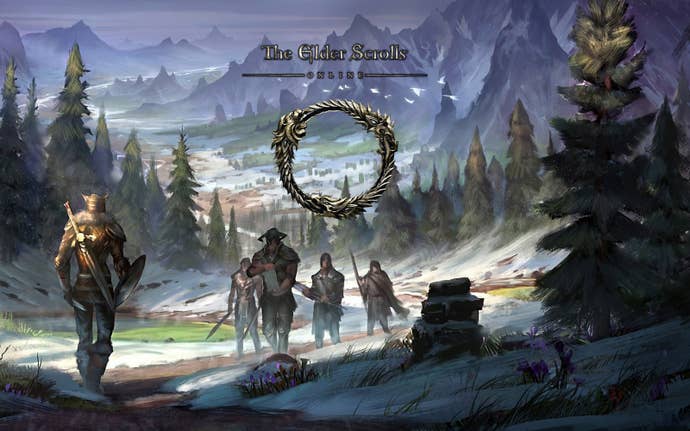
What's the Fly in the Ointment?
Speaking of TESO, the potential monkey wrench in any future plans for the franchise comes from this MMO spin-off. Again, Bethesda takes the lore of the Elder Scrolls universe very seriously, and they're treating TESO as a legitimate chapter of the tale. While it's set in the series' distant past -- toward the middle of the Second Era, where Skyrim took place a couple hundred years into the Fourth Era -- and therefore will probably have little direct bearing on the central plot line, TESO is bound to have some lasting ramifications on the lore of the series.
But perhaps more than that, TESO brings significant changes to the series' overall design. Its introduction of a persistent online world and quest-driven system could find their way into the main Elder Scrolls series, and Bethesda's team is almost certainly keeping an eye on player reaction to TESO. For better or for worse, it could have a considerable impact on the series' future direction.
Where do you see The Elder Scrolls going from here? More importantly, where do you want it to go?







